Best cheap phones in Australia 2021: the top budget handsets you can buy right now
UPDATE: Motorola's Moto G30 has landed on our list of the best cheap phones in Australia for 2021 – read on to find out more about it!
While handsets like the Samsung Galaxy S21 Ultra, iPhone 12 and the Google Pixel 5 are stealing attention around the globe, there's a lot of intriguing (and cheap) stuff going on in the world of budget phones.
Sadly smartphone innovation isn't cheap – and most of it is reserved for high-end contract handsets. There is however such a thing as a good cheap smartphone, and ever so gently all those amazing features from the flagship devices are slowly trickling down to the budget phones.
That's why we have sorted through hundreds of inexpensive smartphones in order to rank the best options that you can buy unlocked without monthly fees and, importantly, without a two-year contract.
No, these aren't the best smartphones available in Australia, so you won't find any high-end flagships among them. However, it is a selection of our favourite budget smartphones. If you're looking to pick up a decent handset for not much cash, these are the top cheap phones your money can buy.
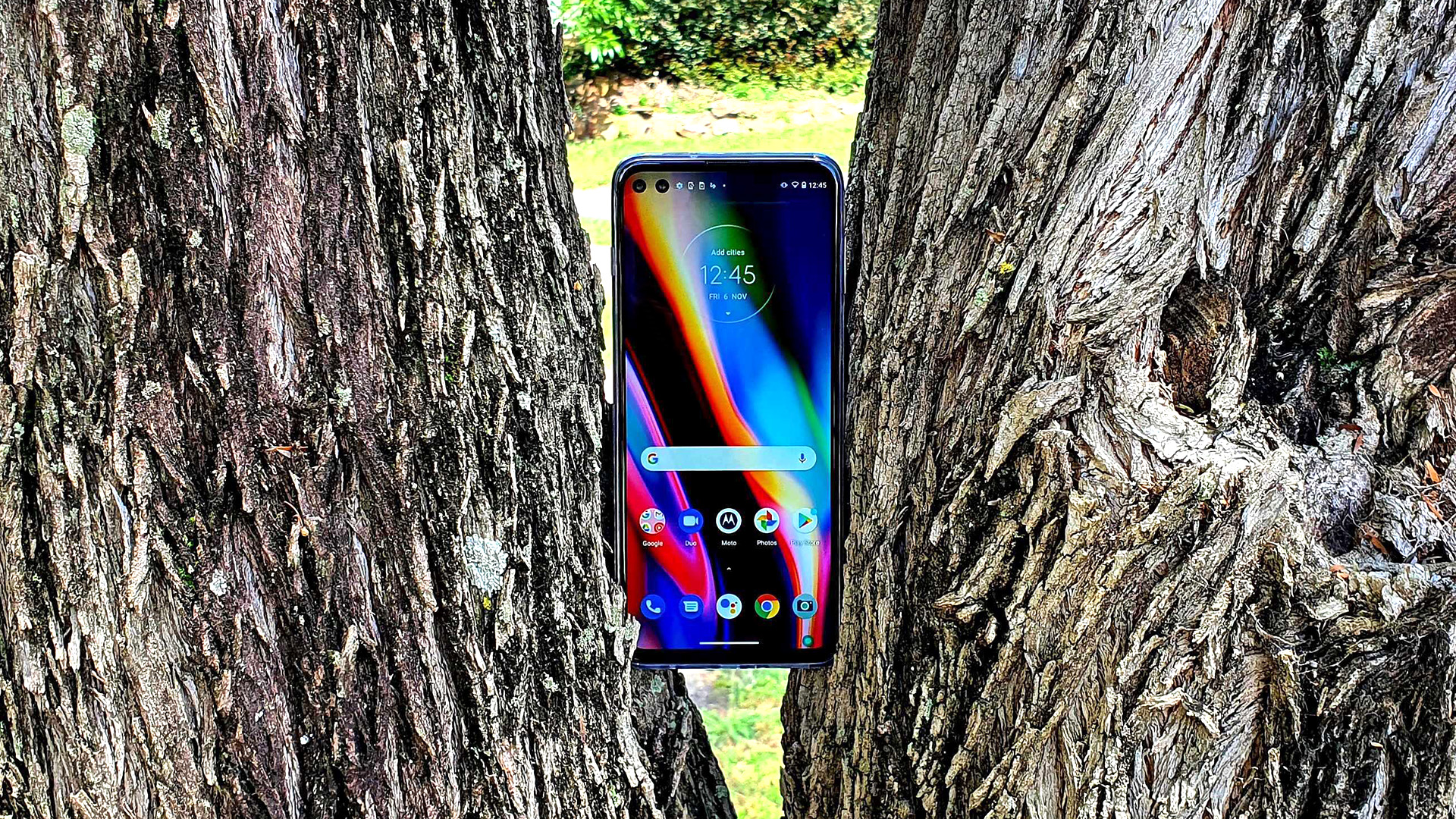
A brand new smartphone with 5G capability and a Snapdragon 765 processor for under AU$500? You better believe that's what Motorola is offering with the Moto G 5G Plus, making it the best cheap smartphone available in Australia right now.
Officially the cheapest 5G handset on the market, the Moto G 5G Plus offers super-fast download speeds (so long as your phone plan is up to it), along with the exact same chipset that's powering Google's Pixel 5 flagship. Talk about unbelievable value!
Admittedly, you still get an older 6.7-inch LCD display instead of an AMOLED (expected at this price point), however, it's still decently bright and colourful, meaning the only thing you stand to lose is perfect blacks.
The Moto G 5G Plus sports a decent quad camera on its rear, with a quad pixel primary sensor that equates to 48MP, meaning increased dynamic range in photos. That's joined by an 8MP ultra-wide sensor, a 5MP macro sensor and a 2MP depth sensor. On the front, you get dual pinhole cameras, with a 16MP wide lens, and an 8MP ultra-wide sensor for group selfies.
In terms of performance, the Moto G 5G Plus is a snappy device, thanks to the aforementioned Snapdragon 765 chipset. The device's UI is fast and intuitive, making good use of Android 10's baked-in gesture controls.
We love that the phone still has a 3.5mm headphone jack on its bottom, and that Motorola has included a USB-C port for charging. That said, we aren't crazy about the awkward side-mounted fingerprint scanner, or the dedicated Google Assistant button, which we kept confusing for a power button.
Minor quibbles aside, it's frankly incredible that Motorola has managed to deliver such an impressive device for under AU$499. In short, the Moto G 5G Plus is unbeatable value.
Read our full Moto G 5G Plus review
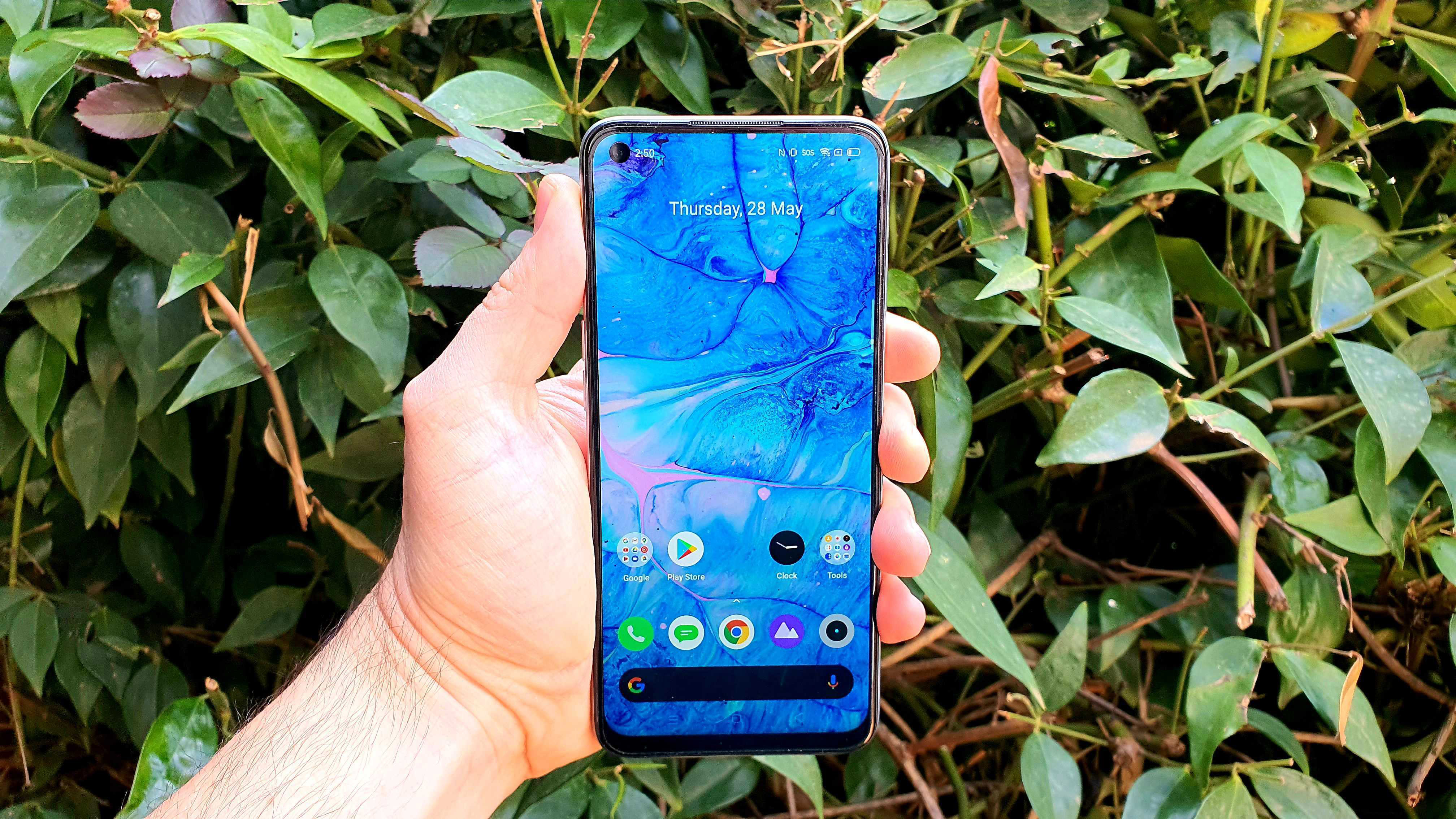
Intended as a successor to the Realme XT (previously placed at number one on this very list), the Realme 6 boasts some very premium new features along with an even more affordable price point, though its reduced cost has resulted in a slight downgrade in some areas.
Boasting Android 10 right out the box, the Realme 6 is a nice little performer, backed by an impressive 8GB of RAM – an amount of memory which few would've expected to find in a AU$469 phone just a year or two ago.
As great as its tech specs are, the inclusion of a display with a 90Hz refresh rate is arguably the Realme 6's most standout feature. With the 90Hz mode switched on, scrolling on the Realme 6 becomes incredibly smooth.
Admittedly, while that faster refresh rate is beautiful, it does result in some impact on battery life. Thankfully, the Realme 6's battery is slightly larger than the one found on its predecessor, sporting a decently sized 4,300mAh battery.
Of course, gaming on the Realme 6 benefits the most from the faster screen, with more responsive gameplay on the whole. That said, the main trade-off is that the Realme 6 loses XT's brilliant AMOLED display, instead opting for a less vibrant IPS LCD screen.
In terms of security, Realme 6 offers a side-mounted fingerprint scanner – a welcome addition, even if it is a clear step-down from the in-display sensor featured on the XT. Users also have the option of using the device's less-secure face unlock functionality.
With many great premium-level features and a budget price, it's easy to recommend the Realme 6, especially if you're an avid mobile gamer who values a smooth gameplay experience.
See the best Realme 6 outright deals here
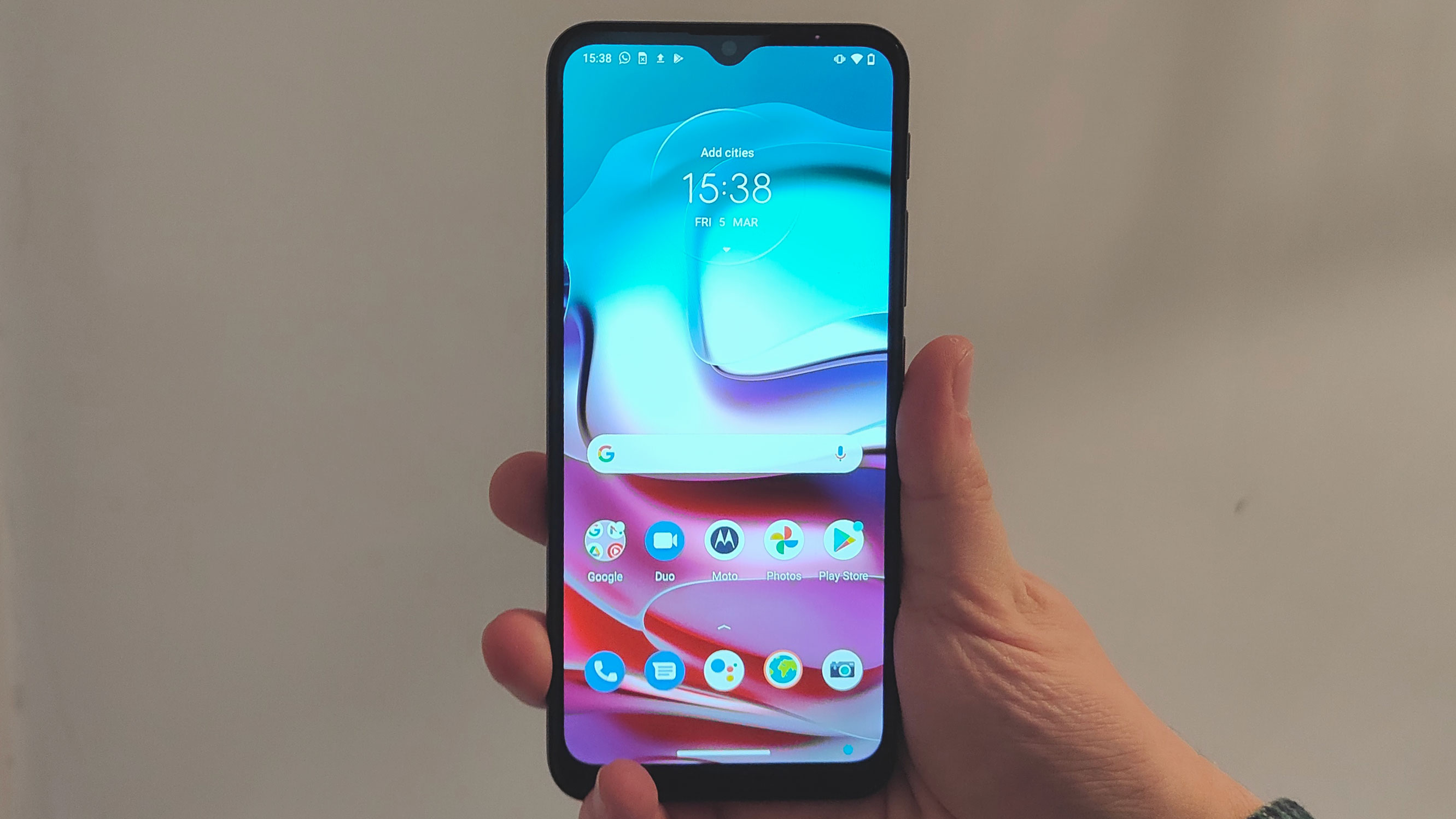
Motorola is back with a new set of budget smartphone offerings in 2021, led by the Moto G30, a decent phone that counts affordability as its main selling point.
Of course, the Moto G30's AU$299 price point is not the only thing worth talking about – the budget handset also offers roughly two full days of usage life thanks to a hefty 5,000mAh battery.
That said, the Moto G30's brilliant battery life is likely boosted by the shortcomings of its IPS LCD display, as it's not the brightest screen around and only offers a max resolution of 720p.
Still, the phone does a huge step up from last year's equivalent offering from Motorola, the Moto G9 Play, when it comes to its camera. The Moto G30 now boasts an impressive quad-camera array led by a 64MP primary sensor, along with an 8MP ultra-wide lens, and 2MP macro and depth-sensing lenses.
Once again, a Night Vision mode is included for impressive low-light photography. On the front of the phone, you also get an upgraded 13MP camera for selfies.
While the Moto G30's design won't have anyone mistaking it for a flagship, mostly due to its surprising thickness, it is a nice looking phone. Given its price, the Moto G30 can be forgiven for its lack of in-display fingerprint reader, opting instead for a rear-mounted sensor.
In terms of size, the G30 is only slightly shorter than Samsung's Galaxy S20 Ultra, though its screen size takes a hit due to the inclusion of a larger-than-expected chin bezel.
Speaking of the Moto G30's display, we're pleased to note the inclusion of a 90Hz refresh rate, which makes scrolling and gaming feel noticeably smoother. It's also worth noting that unlike last year's models, the Moto G30's selfie camera has moved to the centre of the display and is now sports a teardrop notch rather than a pinhole cutout.
Motorola has proven itself many times over the years when it comes to the quality of its budget handsets, and the Moto G30 is no exception. Though the phone lacks 5G connectivity, those looking for cheap handset that offers a long-lasting battery and decent photography will surely find satisfaction in the Moto G30.
Read our full Motorola Moto G30 review
See the best Motorola Moto G30 outright deals here
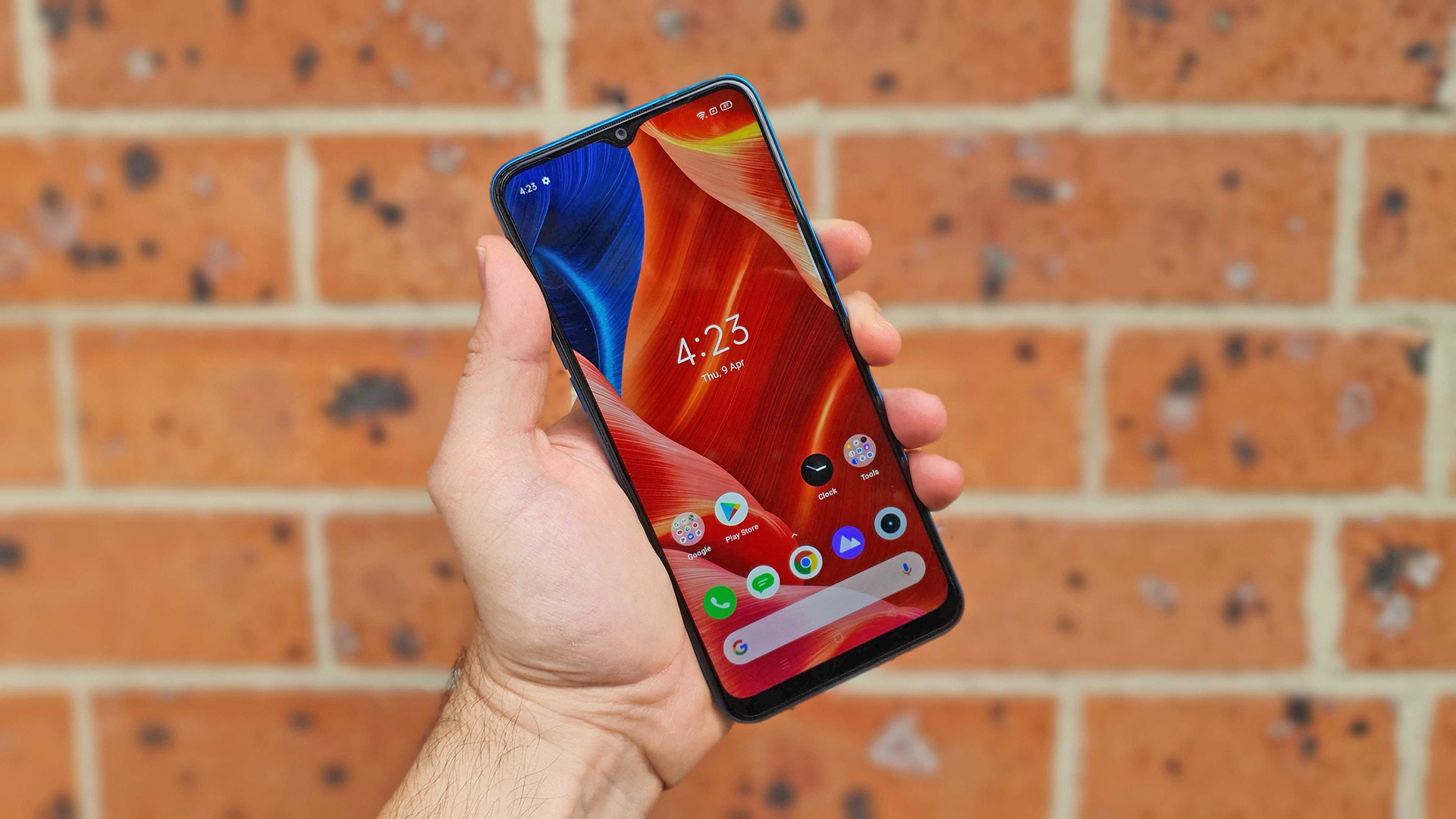
Sporting Android 10 right out of the box, Realme C3 feels distinctly current and up-to-date for a low-cost smartphone. Along with a system-wide dark mode option and a full suite of gesture controls, the Realme C3 offers all the security and privacy features we've come to embrace in the latest version of Android – and all presented through the lens of Realme's colourful new UI.
Speaking of lenses, the Realme C3 sports a triple lens snapper on its rear which is capable of some decent, if not spectacular macro and bokeh-style photos. Of course, it would be unreasonable to expect flagship results from a AU$269 (RRP) handset. On the front of the device, you also get a 5MP selfie camera with AI-driven portrait and beauty features.
However, the Realme C3's real showstopper is its enormous 5,000mAh battery, which is comparable to many of the world's flagship phones. You can even share some of that extra juice with another handset via cable connection thanks to the inclusion of reverse charging functionality.
If there's one major downside to the Realme C3, it's that it sports an older Micro USB port for charging and data transfer, rather than the now standard USB Type-C port. That said, if you can overlook this stumble, you'll find the Realme C3 to be a terrific smartphone option for those trying not to break the bank.
See the best Realme C3 outright deals here
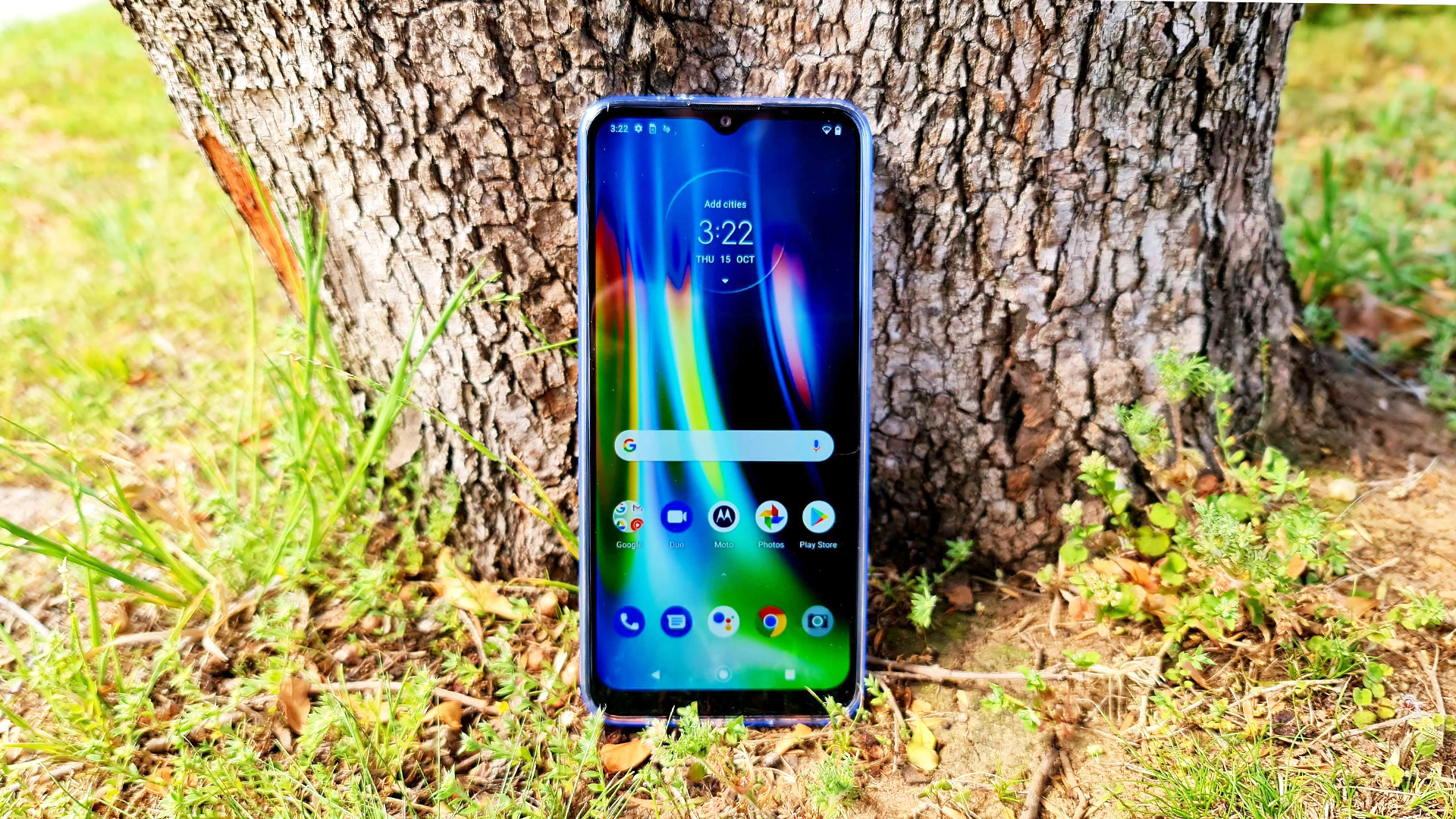
The term "you get what you paid for" crops up fairly often in regards to cheap products, however, Motorola's new Moto G9 Play proves to be an exception, giving you even more value for money than you'd expect from its low AU$299 price point.
The Moto G9 Play is able to boast a number of features that have been taken for granted in recent years, such as a super-fast, rear-mounted fingerprint scanner, a microSD card slot and a much-appreciated 3.5mm headphone jack.
Sporting a triple camera with a 48MP primary sensor on its rear, the Moto G9 Play is able to take decent, if unspectacular day time photos. That said, a new night mode that takes advantage of post-processing techniques is able to capture excellent images in relatively dark environments – an impressive feat for a budget smartphone.
Perhaps the Moto G9 Play's biggest selling point, however, is its massive 5,000mAh battery, which will keep the handset running for at least two full days of usage. Of course, in order to achieve this much battery life, concessions have been made, such as the decision to go with a relatively low-res 720p display.
Still, with its huge battery, decent triple camera, welcome features and low price point, the Moto G9 Play is well worth the asking price.
See the best Moto G9 Play outright deals here
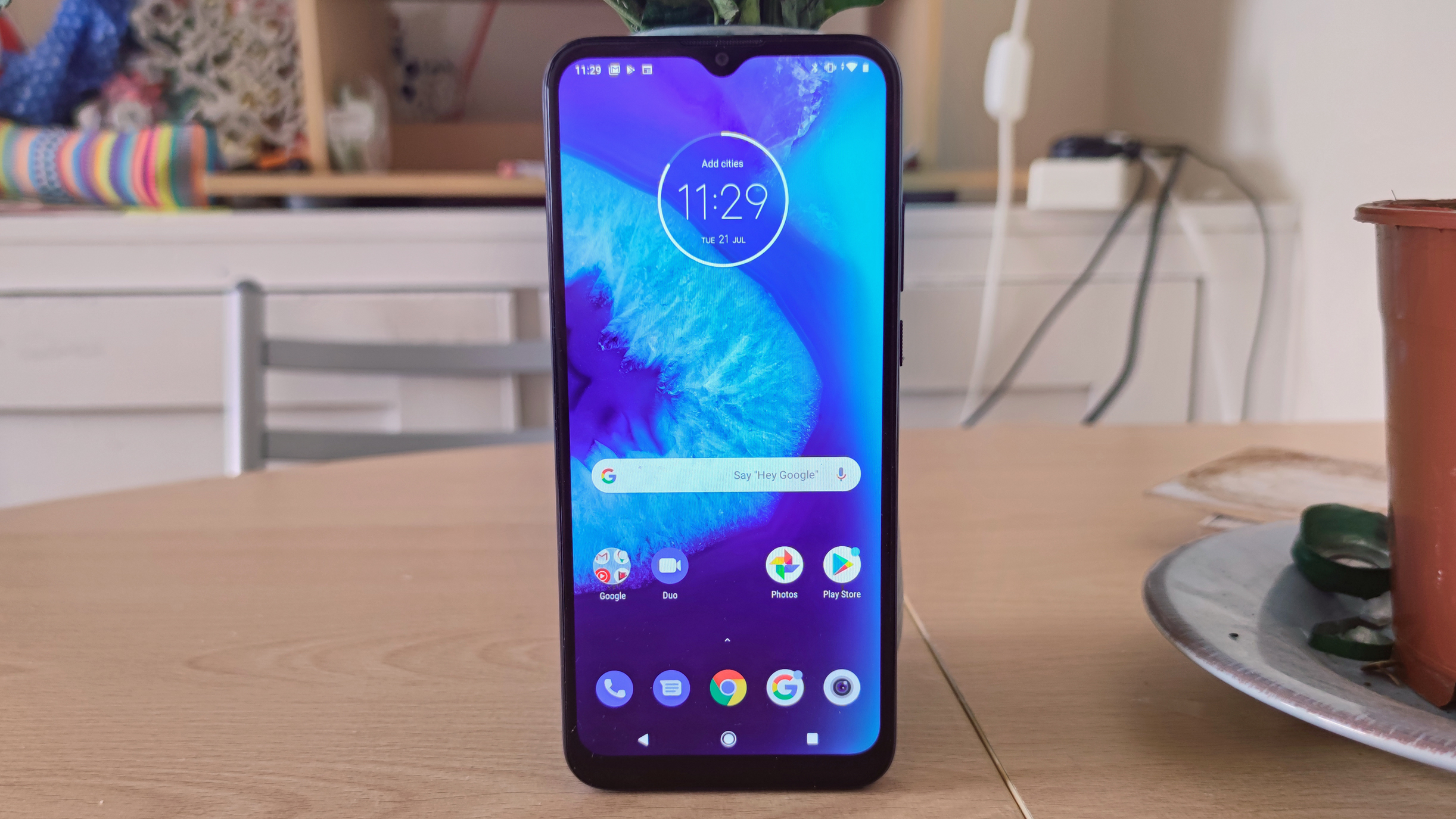
One of the best things about Motorola's Moto G series is that it always offers a number of low-cost options to choose from, allowing users to choose the right model for their needs – all without breaking the bank.
Compared to its slightly more expensive siblings, the Moto G8 Power Lite's main point of difference is in its immense battery life. You can thank the Power Lite's massive 5,000mAh battery for that, only with a lower resolution display that reduces power consumption by a significant margin.
That isn't to say that that the Moto G8 Power Lite's screen is bad, either. In fact, the handset's 720p IPS LCD display is still able to produce vibrant images at a decent brightness level – though don't expect excellent OLED-like contrast from this AU$249 phone.
As for its photo-taking capabilities, you get a triple camera array on the phone's rear, led by a 16MP primary sensor that takes nice snapshots. Additionally, you get dual 2MP macro and depth sensors, though don't expect great results from these two.
Although it runs on a fairly old MediaTek Helio P35 processor, the Moto G8 Power Lite offers surprisingly decent performance for day-to-day tasks, thanks in large part to its 4GB of RAM and stock Android 9 software.
If you're the type of user who longs for excellent battery life over the usual smartphone bells and whistles, the Moto G8 Power Lite is a good option at a fantastically affordable price point.
See the best Moto G8 Power Lite outright deals here
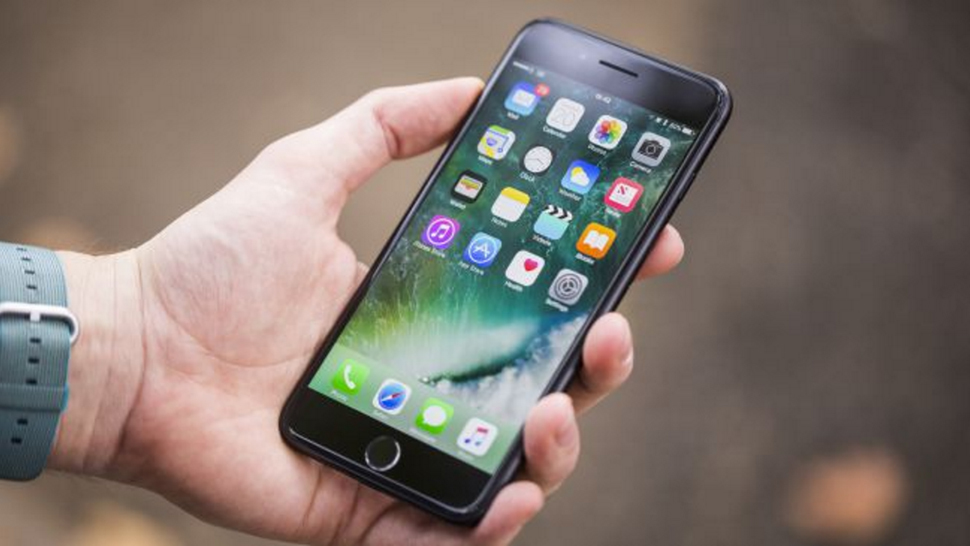
The iPhone 7 might be the oldest iPhone (along with the iPhone 7 Plus) still sold by the company, but that also makes it the cheapest iPhone that's currently on offer, making it ideal for those who'd like to play in Apple's ecosystem without paying exorbitant amounts of money.
On paper, the iPhone 7 is outclassed by most of the newer Android handsets on this list in terms of camera and specs. However, Apple's A10 Fusion chip offers the handset great performance, and in the hand it definitely retains an undeniable sense of quality despite its age.
While it may have been replaced by two separate generations of iPhones, with a lower price tag and the latest iOS 13 software on board the iPhone 7 is still very much a viable option for those looking for a slice of Apple's smartphone pie.
See the best iPhone 7 outright deals here
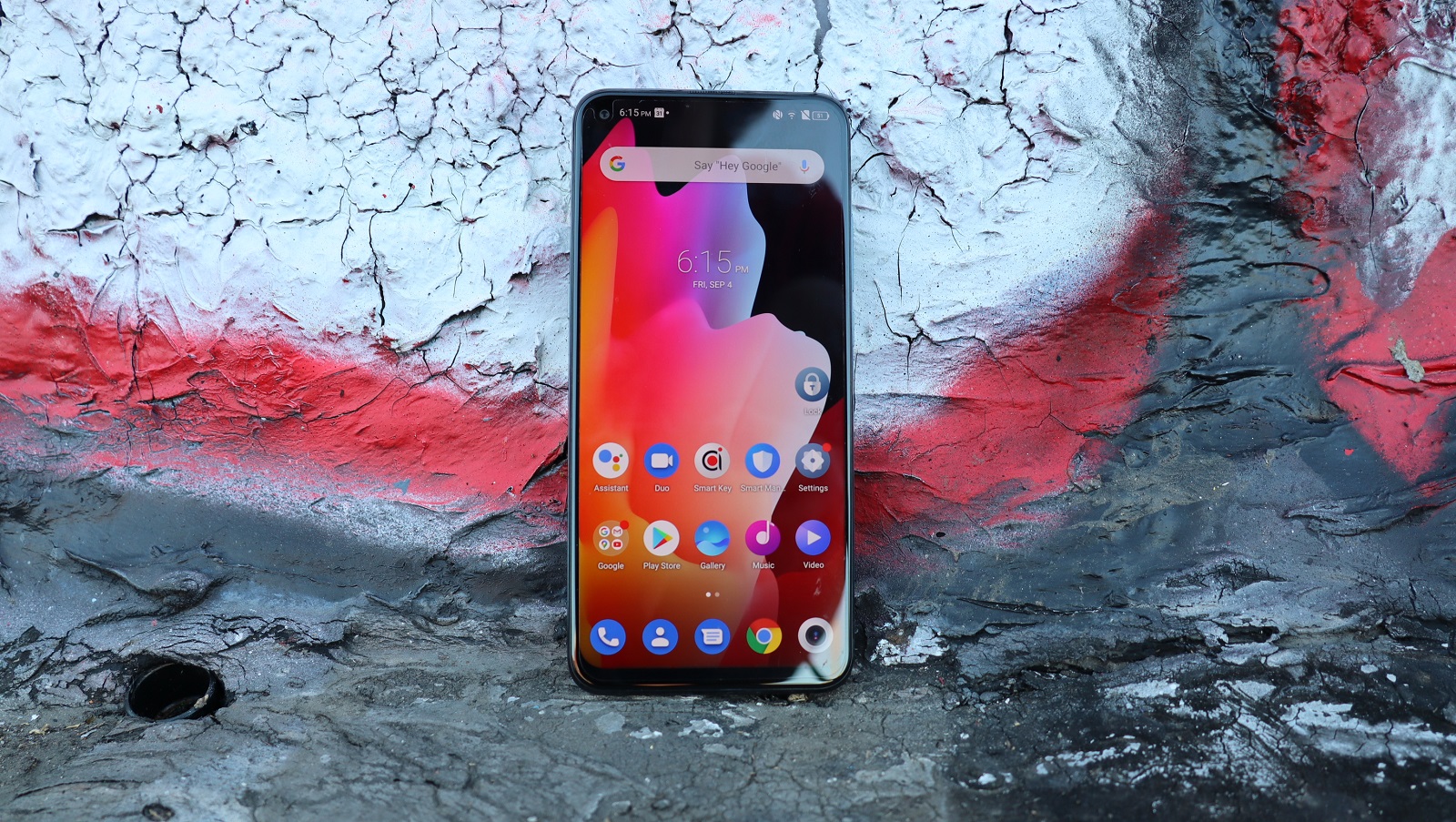
Priced just low enough to still be considered a budget phone, the TCL 10L offers a great display, decent specs and a better-than-expected quad-camera array for just AU$499.
Relatively new to the smartphone scene, TCL has brought its TV manufacturer know-how to the 10L, with a crisp 6.53-inch FHD+ LCD display that offers impressive colour accuracy and brightness. Simply put, it's one of the best screens we've seen on a budget handset.
As for its photographic capability, the TCL 10L delivers a quad-camera array on its rear – quite a feat for a budget smartphone – with a 48MP main shooter, 8MP ultra-wide lens, a 2MP macro lens and a 2MP depth sensor for bokeh shots.
Rounding out the camera package is a 16MP front-facing lens, which takes very nice selfies. Admittedly, photos taken with the 10L's macro lens are pretty underwhelming, making us wish that TCL had opted for a telephoto lens in its stead.
In terms of performance, the TCL 10L handles itself pretty well for the most part, though there are occasional hiccups when scrolling or swiping between screens. While the 10L boasts Android 10 out of the box, TCL has promised that the phone will get an update to Android 11 in the future.
Although the TCL 10L is priced a little higher than most other budget smartphones, its terrific screen, impressive camera and reasonable specs make it well worth the money.
See the best TCL 10L outright deals here
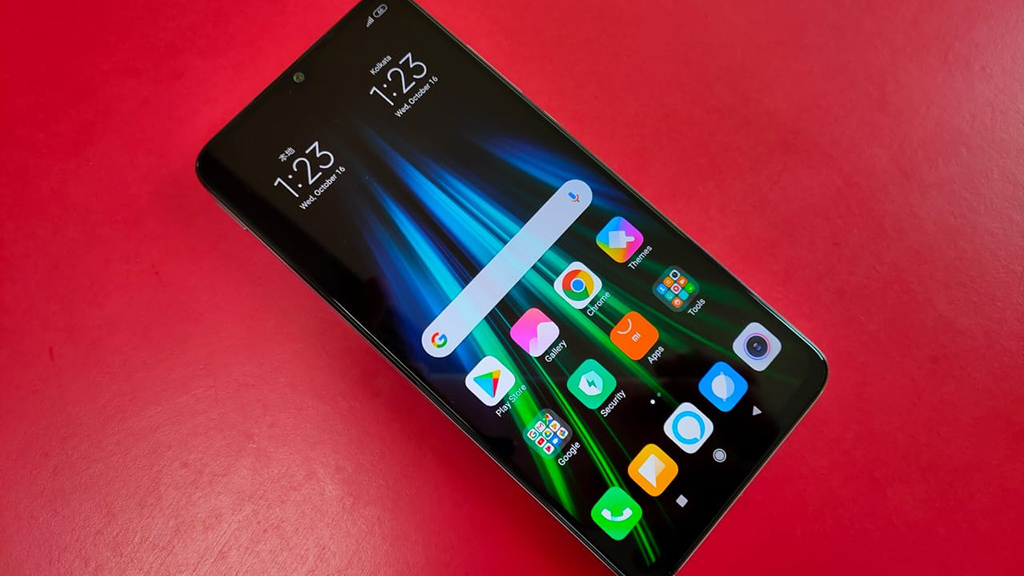
Sporting impressive specs and a large, colourful display, Xiaomi's Redmi Note 8 Pro is definitely a good option for those who want great mobile gaming performance at an affordable price.
It's got a gaming-focused chipset in the Mediatek Helio G90T, offering exceptional performance on titles like Call of Duty: Mobile and PUBG. That's backed by a hefty amount of RAM, a huge battery and the inclusion of liquid cooling.
Looking at its specs on paper, the Xiaomi Redmi Note 8 Pro almost seems too good to be true. However, it is significantly let down by its MIUI software and an abundance of bloatware. Still, a bit of tinkering (and a lot of uninstalling) can significantly improve the phone's overall experience, making it a great option for the value-minded gamers out there.
See the best Xiaomi Redmi Note 8 Pro outright deals here
- Check out how these cheaper models compare to our overall top Aussie smartphone picks


No comments